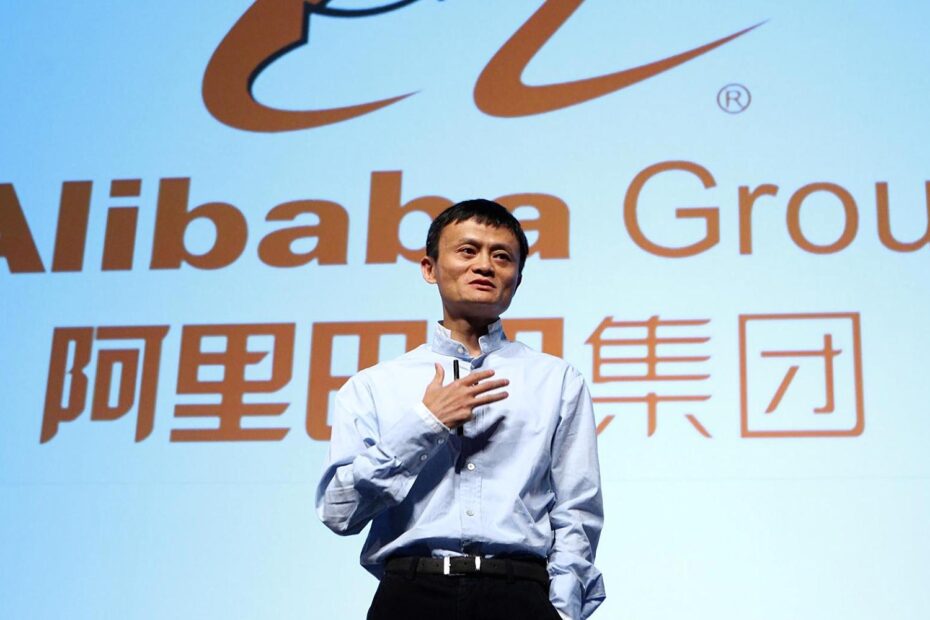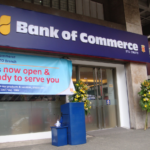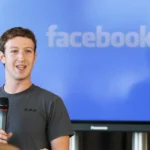Jack Ma, the charismatic founder of Alibaba Group, is one of the most iconic and unconventional entrepreneurs of the 21st century. Born into poverty, rejected from jobs—including KFC—and lacking any background in technology, Ma defied all odds to build one of the world’s largest e-commerce empires. His journey from an English teacher in Hangzhou to becoming one of China’s richest individuals is a testament to resilience, vision, and the power of belief. This blog explores his life, business philosophies, and the legacy he continues to shape.
Early Life and Humble Beginnings
Childhood in Hangzhou, China
Jack Ma was born on September 10, 1964, in Hangzhou, a picturesque city in southeastern China. Born as Ma Yun, his family was poor but supportive. His parents were traditional musicians and storytellers. As a child, Ma was curious, energetic, and often got into fights. He struggled academically, particularly with math and science, but had a keen interest in English.
When China began opening up to the West in the late 1970s, Ma seized the opportunity to learn English by offering free guided tours to foreigners at the Hangzhou Hotel. Every morning, for nine years, he would ride his bike for 40 minutes to the hotel and practice English with tourists. One of them gave him the nickname “Jack,” which he later adopted as his global identity.
Rejection and Resilience
Ma’s path was marked by failure and rejection. He failed the Chinese university entrance exam twice before finally being accepted into Hangzhou Normal University, where he earned a degree in English. After graduation, he applied to dozens of jobs—including a local police department and even KFC. Out of 24 KFC applicants, 23 were hired. Ma was the only one rejected.
Despite setbacks, Ma became a lecturer in English and international trade at a local university. His limited salary couldn’t hold him back; he always believed he was meant for bigger things.
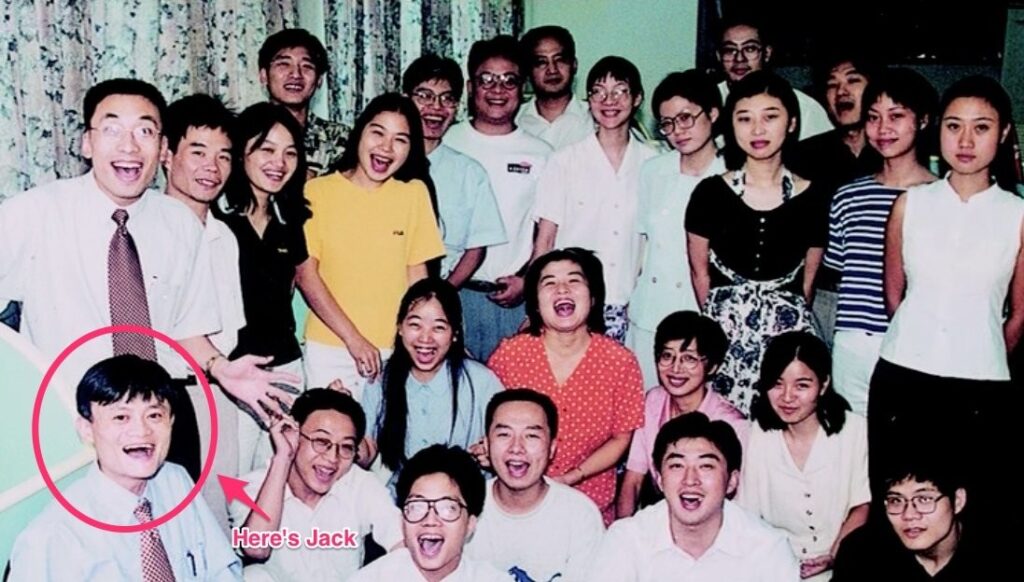
Discovering the Internet
A Trip to the U.S.
In 1995, Jack Ma visited the United States as an interpreter for a trade delegation. While in Seattle, he encountered the internet for the first time. Searching the word “beer,” he noticed there were results for American and German beer, but none for Chinese beer. He realized China had almost no online presence—a gap he believed could be filled.
Returning home, he started China Pages, one of China’s first internet companies, focused on helping businesses build websites. While the venture didn’t succeed financially, it planted the seed of digital entrepreneurship in Ma’s mind.
The Birth of Alibaba
The 18 Founders
In 1999, with just $60,000 pooled from 18 friends in his apartment, Jack Ma founded Alibaba. The goal was simple yet bold: create a marketplace where small Chinese exporters could connect with overseas buyers. Ma had no background in coding, no experience in e-commerce, and no financial backing from large institutions.
What he had was vision, grit, and an uncanny ability to inspire. He named the company “Alibaba” because it was easy to pronounce globally and associated with the magic of “open sesame.”
Initial Struggles and Breakthroughs
In its early years, Alibaba faced massive competition from global players like eBay. But Ma’s deep understanding of Chinese business culture and his belief in empowering small businesses gave him an edge. He kept the platform free for merchants initially to build a user base and focused on customer trust and service.
A turning point came in 2005, when Yahoo invested $1 billion in Alibaba in exchange for a 40% stake. This gave Alibaba the capital and credibility it needed to dominate the Chinese market. In 2013, Alibaba surpassed eBay and Amazon in gross merchandise volume, becoming the world’s largest e-commerce platform.
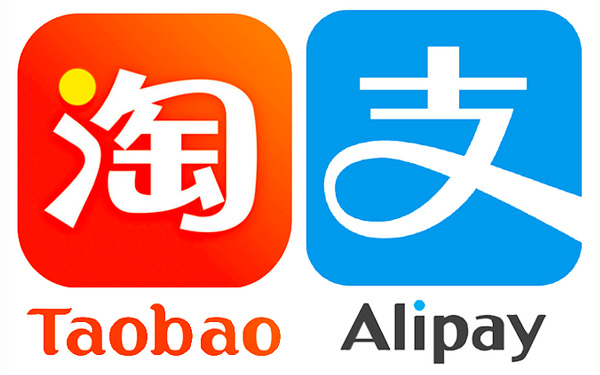
Fighting Off eBay with Taobao
When eBay entered China in 2003, it posed a direct threat to Alibaba’s consumer-to-consumer market. In response, Ma launched Taobao, a localized e-commerce platform that offered free listings and a culturally tuned user experience. Taobao’s interface was more colorful and interactive, aligning with Chinese preferences.
Alibaba also outmaneuvered eBay by leveraging local payment challenges—where credit card penetration was low—by developing Alipay, an escrow-based digital payment service. This allowed users to pay securely after receiving their products, overcoming the trust deficit in online transactions.
Building the Alibaba Ecosystem
Ma didn’t stop at e-commerce. He envisioned Alibaba as a full digital ecosystem. The company expanded into:
-
Tmall (branded B2C retail)
-
AliExpress (international B2C)
-
Alibaba Cloud (cloud computing)
-
Cainiao (logistics)
-
Ant Group (financial services)
Each arm complemented the other, making Alibaba not just a marketplace, but a platform powering millions of businesses.
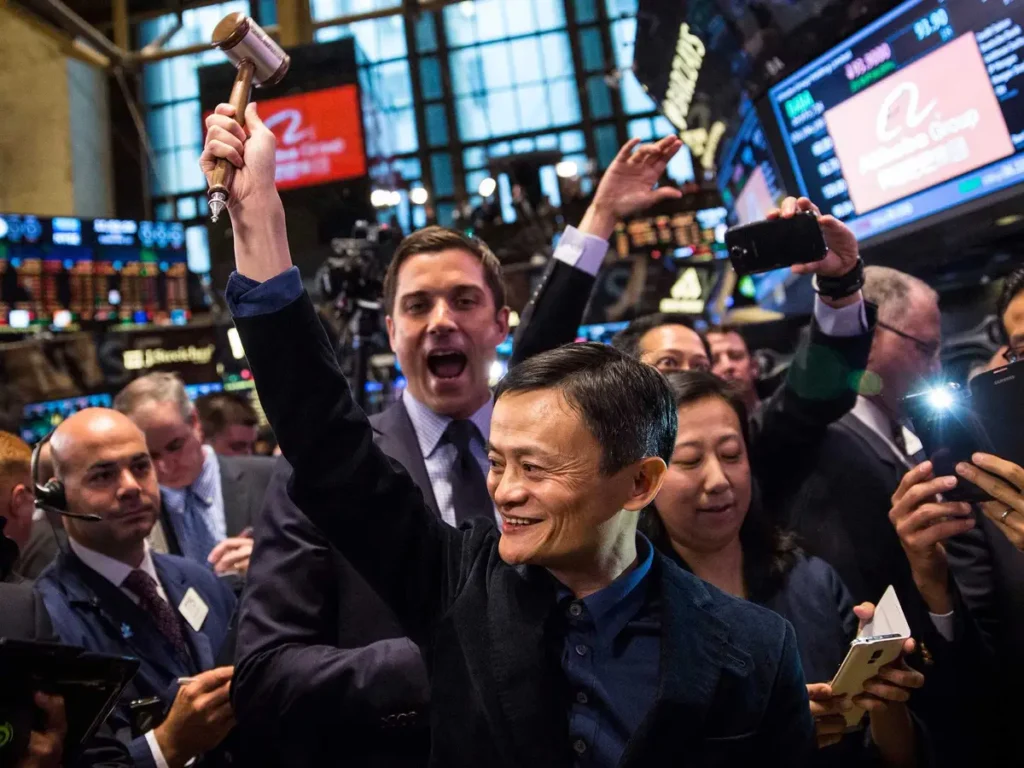
Going Public and Global Expansion
The World’s Biggest IPO
In 2014, Alibaba went public on the New York Stock Exchange, raising $25 billion—the largest IPO in history at the time. The offering cemented Alibaba’s place on the global stage and made Jack Ma an international business celebrity.
Global Strategy and Local Challenges
Ma pushed for international expansion through platforms like AliExpress and partnerships in Southeast Asia, India, and Africa. However, Alibaba’s growth also attracted regulatory scrutiny. The Chinese government began tightening controls over big tech, leading to delays in Ant Group’s IPO and other regulatory hurdles.
Despite stepping down as executive chairman in 2019, Ma remains the face of Chinese entrepreneurship. His temporary disappearance from public view in 2020 following government criticism raised eyebrows globally but did little to tarnish his long-term influence.
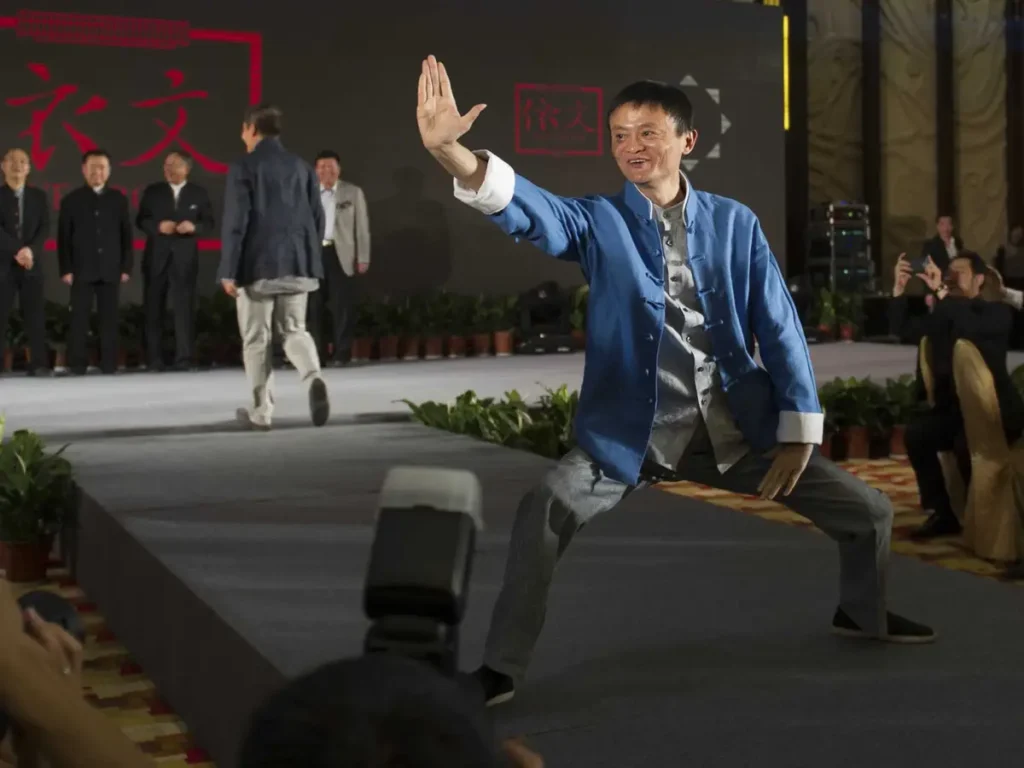
Life and Business Lessons from Jack Ma
1. Embrace Rejection as Fuel
From being rejected by dozens of jobs to early startup failures, Ma’s resilience is legendary. He often says, “If you don’t give up, you still have a chance.”
2. Focus on Customers, Not Competitors
Ma didn’t try to beat eBay by copying it. Instead, he built a platform suited to Chinese consumers and small businesses. Understanding the local market was more important than winning the global one.
3. Trust and People First
Despite lacking technical skills, Ma built a strong team by hiring passionate, mission-driven people. He believed in building culture before infrastructure.
4. Be Mission-Driven
Alibaba’s core mission wasn’t just to profit—it was to “make it easy to do business anywhere.” This guiding principle helped the company align its actions with long-term impact.
5. Adapt to Change Quickly
Ma pivoted from teaching to entrepreneurship, from domestic to global markets, from e-commerce to fintech. His flexibility and vision allowed him to anticipate trends and move fast.
6. Humility and Humor
Jack Ma is known for his down-to-earth demeanor, self-deprecating jokes, and even dancing in company performances. His humility made him relatable, his humor made him beloved.
Philanthropy and Social Impact
Focus on Education and Environment
In 2014, Ma established the Jack Ma Foundation, with a focus on education, entrepreneurship, and environmental protection. He has committed billions toward rural teacher programs in China, educational reform, and tech-enabled learning.
Global Response to COVID-19
During the early months of the COVID-19 pandemic, the Jack Ma Foundation sent medical supplies, masks, and ventilators to over 150 countries, earning global respect for proactive humanitarian efforts.
Jack Ma’s journey from a rejected job applicant to the architect of one of the most powerful tech empires in the world is nothing short of extraordinary. He didn’t come from wealth, he wasn’t a coder, and he didn’t speak perfect English—but he dreamed big, executed boldly, and led with heart.
His story is not about smooth roads or quick success. It’s about grit, belief, and building something meaningful with limited resources. For entrepreneurs, Ma’s journey is a reminder that success is often born not from brilliance alone, but from perseverance, adaptability, and courage.
As Jack Ma famously said:
“Today is hard, tomorrow will be worse, but the day after tomorrow will be sunshine.”
